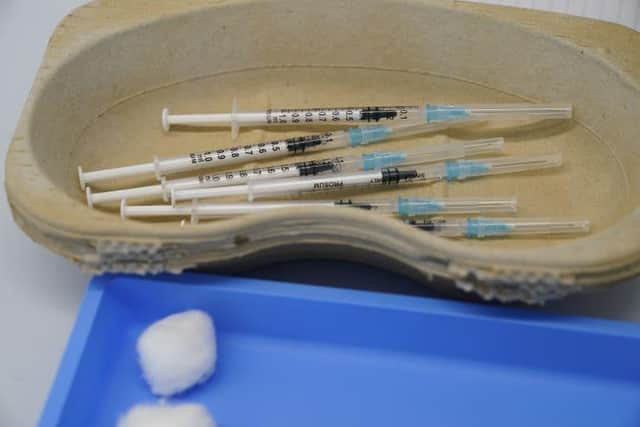Cases of the Indian variant of Covid-19 recorded in Doncaster
and live on Freeview channel 276
Public Health England has been tracking the spread of the B.1.617.2 mutation – which originated in India – by testing positive Covid-19 cases across the country for an "S-gene".
The gene is not present in the dominant Kent variant, which was responsible for a surge in cases over the winter, but is present in other variants of concern, including those from India.
Advertisement
Hide AdAdvertisement
Hide AdScientists have determined that the vast majority of the S-gene specimens identified across England in May are the Indian variant.


PHE identified three positive cases of the S-gene in Doncaster between May 8-14.
The health body had previously reported that no cases were detected in the area between May 2-8, but warned that it has counted any tests conducted on May 8 twice.
The majority of areas in England have now reported at least one case.
Advertisement
Hide AdAdvertisement
Hide AdThe data shows 6,729 S-gene positive cases were recorded in England between the start of March and May 11 – up from 4,363 by May 5.
Of these, 239 (four per cent) were in Yorkshire and The Humber – the third smallest proportion of England's nine regions, and well behind the North West, where there are almost 3,000.
PHE analysis suggests that of a national sample of 1,192 positive S-gene specimens, 93% were found to be the B.1.617.2 Indian mutation.
The data comes as a separate PHE study found both the Pfizer and AstraZeneca vaccines were highly effective against the Indian strain after a second dose.
Advertisement
Hide AdAdvertisement
Hide AdHowever, the same study found they were only 33 per cent effective three weeks after the first dose.
The efficacy of the vaccines against the new variants is seen as a major obstacle blocking the next stage of the roadmap, but the chief executive of the UK Health Security Agency said the possibility of restrictions being eased on June 21 was “looking good”.
However, Dr Jenny Harries urged the public to be cautious to avoid another lockdown, warning that the new Indian variant has become the “dominant strain” in some parts of the country.
She told BBC One’s The Andrew Marr Show: “It’s looking good if people are continuing to observe all of the safety signals, so we should not stop doing what we’re doing, particularly in areas where we have that variant of concern."
Advertisement
Hide AdAdvertisement
Hide AdFrom June 21 at the earliest, nightclubs are due to reopen and restrictions on large events such as festivals are to be lifted, as are restrictions on the number of people at weddings.
However, Professor Adam Finn, a member of the Government’s Joint Committee on Vaccination and Immunisation, believes there may be “adjustment” to the lifting of restrictions.
Asked how likely it is that measures will be lifted on that date, he told Times Radio on Sunday: “We’re effectively in a race with the vaccine programme against the virus.
“We know that we’re letting the virus out by spreading it about now, we know that we’re progressing well with the vaccine programme, but I think there’s going to need to be an adjustment of some sort.”
In these confusing and worrying times, local journalism is more vital than ever. Thanks to everyone who helps us ask the questions that matter by taking out a subscription or buying a paper. We stand together. Liam Hoden, editor.
Comment Guidelines
National World encourages reader discussion on our stories. User feedback, insights and back-and-forth exchanges add a rich layer of context to reporting. Please review our Community Guidelines before commenting.
